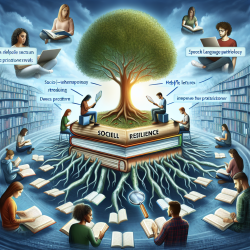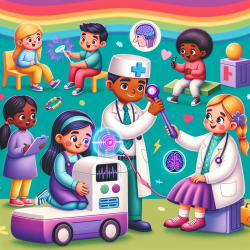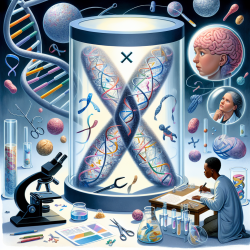As a speech-language pathologist dedicated to fostering positive outcomes for children, it is crucial to stay informed about the latest research and how it can be applied in practice. A recent study titled "Socioemotional Features and Resilience in Italian University Students with and without Dyslexia" provides valuable insights that can enhance our understanding and intervention strategies for students with dyslexia.
The study compared the psychological features of 28 Italian university students with dyslexia to a control group of typically developing students. Key findings revealed that students with dyslexia experienced:
- Higher levels of somatic complaints
- Social and attentional problems
- Lower self-esteem
- Higher depression scores
Interestingly, there were no significant differences in resilience scores between the two groups.
Implications for Practitioners
These findings highlight the importance of addressing not just the academic challenges faced by students with dyslexia but also their socioemotional well-being. Here are some data-driven strategies to consider:
1. Early Diagnosis and Intervention
The study underscores the benefits of early diagnosis and intervention. Students diagnosed early and provided with appropriate support showed better psychological outcomes. Practitioners should advocate for early screening and intervention programs in schools.
2. Comprehensive Support Systems
Creating a supportive environment that includes family, teachers, and peers can significantly impact the socioemotional well-being of students with dyslexia. Encourage schools to implement comprehensive support systems that include counseling, peer support groups, and parental involvement.
3. Focus on Self-Esteem and Mental Health
Given the lower self-esteem and higher depression scores observed, it is essential to incorporate mental health support into intervention plans. Techniques such as cognitive-behavioral therapy (CBT) can be effective in addressing these issues.
4. Training in Social Skills
The study found that students with dyslexia often face social problems. Implementing social skills training programs can help these students build better relationships and improve their social interactions.
5. Attention to Somatic Complaints
Students with dyslexia reported higher levels of somatic complaints. Practitioners should be aware of these potential issues and work closely with medical professionals to provide a holistic approach to the student's well-being.
Encouraging Further Research
While this study provides significant insights, it also highlights the need for further research. Future studies could explore the long-term impact of early intervention on resilience and socioemotional outcomes. Additionally, investigating the role of other protective factors such as adaptive coping strategies and personal strengths could provide a more comprehensive understanding of how to support students with dyslexia effectively.
To read the original research paper, please follow this link: Socioemotional Features and Resilience in Italian University Students with and without Dyslexia.










